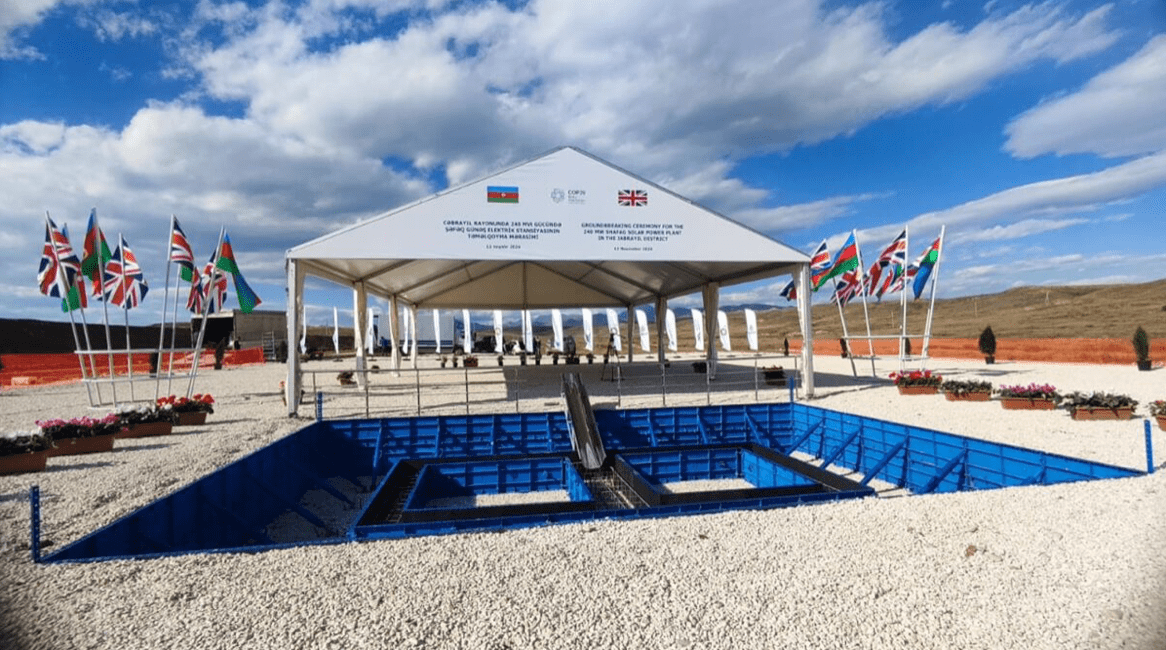Baku’s Power Play: Why Azerbaijan Is Doubling Down on Oil and Diversifying into Solar
Recent Articles
Author: Joshua Bernard-Pearl
06/20/2025
Azerbaijan, a major natural gas exporter, is taking significant steps to diversify and expand its energy portfolio through new investments in both fossil fuels and renewables. During Baku Energy Week on June 2, state-owned energy company SOCAR announced two key agreements: a memorandum of understanding with U.S.-based ExxonMobil to explore unconventional onshore oil resources, and a partnership with BP and Azerbaijan’s Business Development Fund to build a 240-megawatt solar power plant in the Karabakh region. These moves signal a strategic push by Azerbaijan to increase domestic energy output and reinforce its role as a regional energy hub.
 Baku Energy Forum - SOCAR and ExxonMobil sign a memorandum of understanding at the Baku Energy Week to enhance bilateral cooperation in the oil and gas sector
Baku Energy Forum - SOCAR and ExxonMobil sign a memorandum of understanding at the Baku Energy Week to enhance bilateral cooperation in the oil and gas sector
The agreement between SOCAR and ExxonMobil covers the exploration, development, and potential production of unconventional onshore oil and gas reserves: hydrocarbons typically trapped in tight rock formations and requiring advanced extraction methods such as hydraulic fracturing. This represents a new direction for Azerbaijan, where over 95% of oil production currently comes from mature offshore fields in the Caspian Sea. John Ardill, ExxonMobil’s Vice President of Global Exploration called this “a first step toward assessing resource potential and economics.”
The collaboration is currently in an early phase, with no wells planned yet. With more exploration needed, Ardill said, “In the years to come, we’ll be able to talk about the potential size of the resource and what the economics might look like.” According to the Baku Energy Forum, the agreement “outlines plans to deepen collaboration in exploration, production, and energy innovation, reinforcing a long-standing partnership between the two companies.” As Azerbaijan seeks to maintain stable oil output, targeted at around 582,000 barrels per day over the next five years, new onshore production could play a role in offsetting the natural decline of existing offshore fields.
 Azerbaijan Ministry of Energy - Start of construction for Shafag solar power plant in Jabrayil, Karabakh
Azerbaijan Ministry of Energy - Start of construction for Shafag solar power plant in Jabrayil, Karabakh
In a parallel move into renewables, SOCAR and BP signed a deal to develop a 240-megawatt Shafag solar power plant in Jabrayil, Karabakh. The project, expected to cost $200 million, is scheduled for completion by mid-2027. It forms part of a broader national strategy to scale up renewable energy generation, with a goal of reaching 6.5 gigawatts of installed renewable capacity by 2030. The Shafag project complements a series of solar and wind developments currently underway in the country, positioning Azerbaijan to become a more balanced energy producer, capable of supplying both conventional and green energy to domestic and international markets.
However, this diversification does not mean that Azerbaijan has abandoned natural gas expansion. President Ilham Aliyev announced during Baku Energy Week that the country aims to boost annual gas exports by 8 billion cubic meters (bcm) by 2030, up from 25 bcm in 2024. This ambition received further momentum on June 3, when the consortium behind the Shah Deniz gas field, led by BP with a 29.9% operating stake, approved a $2.9 billion investment to expand output. The Shah Deniz field is Azerbaijan’s largest gas reservoir and a cornerstone of its gas export infrastructure to Europe.
These new investments in Azerbaijani energy come at a pivotal moment. Since Russia’s invasion of Ukraine, European nations have increasingly turned to alternative energy suppliers. In 2024, Azerbaijan exported approximately 23.4 million tons of oil and 25.2 bcm of natural gas, with SOCAR serving as a key supplier to multiple European countries, including Italy, Greece, Romania, Hungary, and Slovakia.
By investing in unconventional oil and expanding renewable capacity while continuing to grow its gas exports, Azerbaijan is reinforcing its role as a stable and diversified energy supplier. These developments could pave the way for increased exports to both regional and European markets, supporting the long-term resilience and global relevance of the Azerbaijani energy sector.